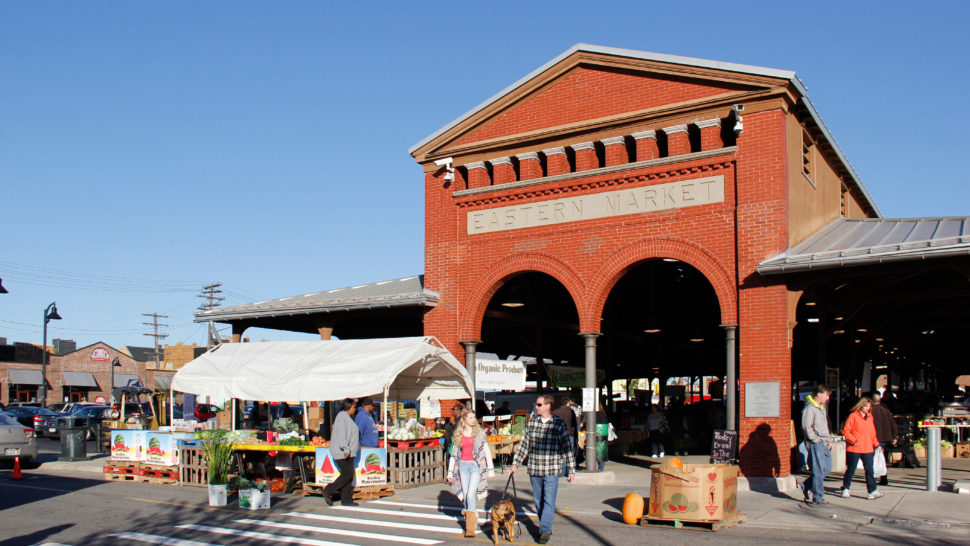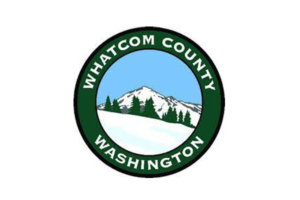Eastern Market is well known for its work as a large public market that has been a cornerstone in Detroit since the 1890s. Five different markets — a variety of year-round and seasonal markets — serve between 500-600 transient vendors. Its reach, though, is much wider. The market is managed by Eastern Market Corporation (EMC) a nonprofit entity that oversees operations, develops programs, builds facilities, and collaborates with community partners to:
- Strengthen the Eastern Market District as the most inclusive, resilient, and robust regional food hub in the United States.
- Fortify the food sector as a pillar of regional economic growth
- Improve access to healthy, green, affordable, and fair food choices in Detroit and throughout Southeast Michigan
EMC’s vast repertoire of programs includes nutrition education, food access initiatives that provide fresh produce to communities around Detroit, and an array of free community services such as yoga and cooking classes. One of EMC’s unique programs is Detroit Kitchen Connect which provides low-cost licensed kitchen space where cherished family recipes can be transformed into small businesses. Food entrepreneurs can apply for grants, funding, and receive technical assistance to scale their business.
While EMC is well-versed in creating wholesale and retail channels for producers and distributors, they too are reinventing their business model as the local food economy changes. We recently spoke with Dan Carmody, CEO, about how Eastern Market’s resilience is an example of a food system adapting to remain relevant and thrive.
Vision for Growth
One challenge that Eastern Market faces is providing enough space that is compliant with new food safety regulations for businesses to expand. Eastern Market is the foundation of a thriving food district where processors and distributors that support the market are located. But many need more space and are beginning to leave the neighborhood because there are limited options.
The City of Detroit, Detroit Economic Growth Corporation, and EMC are co-leading efforts to expand the market district by 100 acres for food-based production, processing, and manufacturing for both large and small producers. This Food Innovation Zone includes a plan to build a 150,000 square foot warehouse to house EM’s Wholesale Market for local growers along with a couple of regional produce houses to attract buyers back to the long stagnant wholesale market.
EMC is working with the Detroit Land Bank Authority and others to assemble sites for food businesses. While there are great amounts of vacant land in Detroit, fragmented land ownership restricts the number of available building sites. Their efforts are already paying off, however, as businesses like Wolverine Packing Company and E.W. Grobbel (America’s oldest corned beef specialists) are able to stay and grow in Eastern Market.
Adapting to Changing Consumer Demand
Another challenge for Eastern Market is meeting the demand for convenient healthy food. Because produce is more nutritionally dense when harvested ripe, EMC is providing resources to freeze ripe fruits and vegetables when it is in abundance. EMC established a partnership with Michigan Farm to Freezer (MFTF) to build facilities to minimally process and freeze produce that can be sold at a later time.
MFTF will also boost the sales and distribution of frozen foods by installing freezers in fresh produce sections of grocery stores, giving frozen local produce more visibility and consumers a broader range of choices when they are shopping for produce.
How to Support
Eastern Market is not just an important driver of good food in Detroit, it is a model for developing integrated food centers, campuses and districts that serve every stakeholder in the food system. We are proud to have worked with EMC in evaluating the frozen processing initiative and are continually inspired by them as they adapt and expand their vision.
Visit their website to read more about their current strategy and consider donating to support their programs at the market, and services for under-resourced communities and entrepreneurs.
(Photo is from EasternMarket.org)



